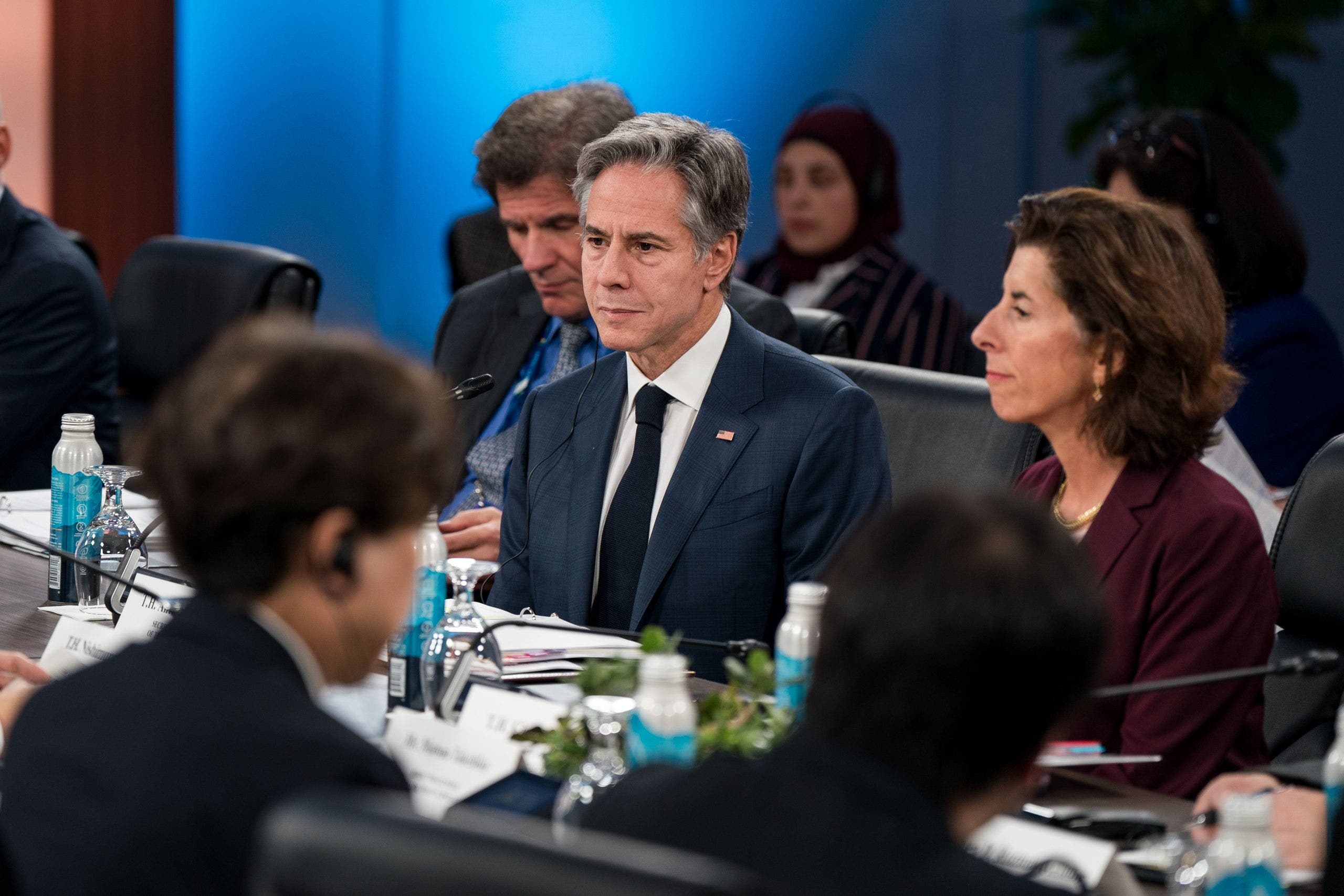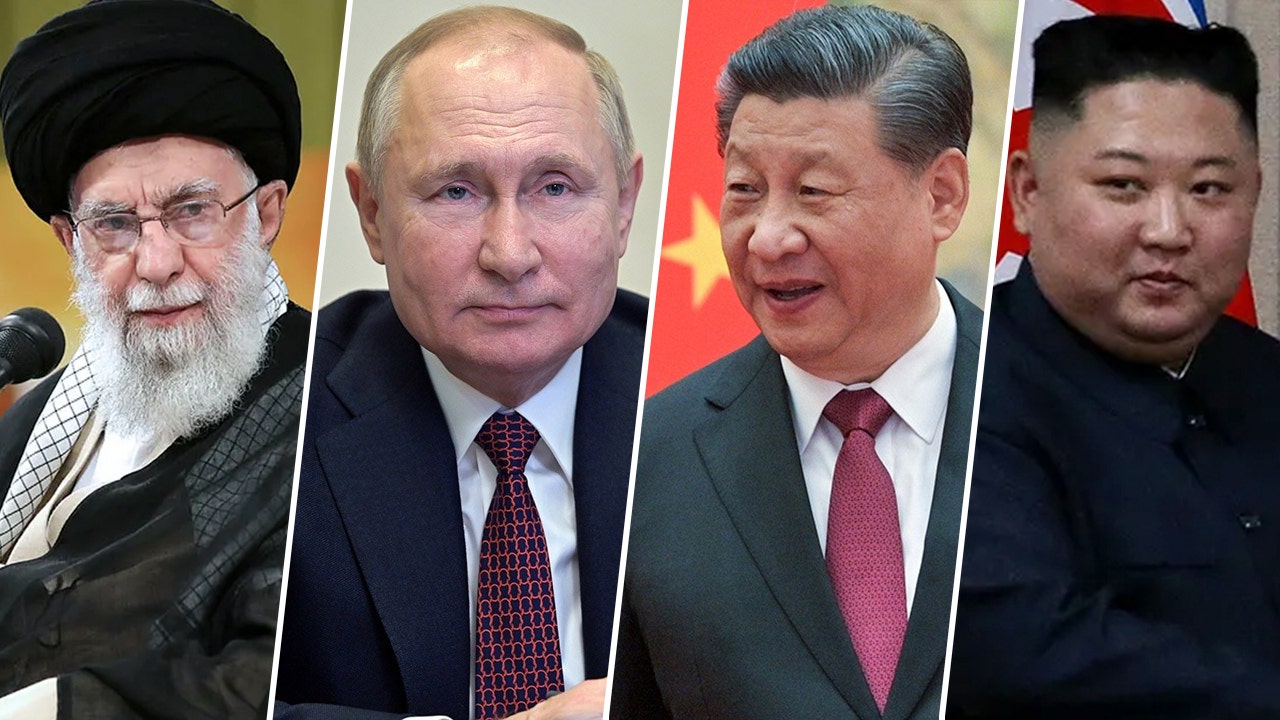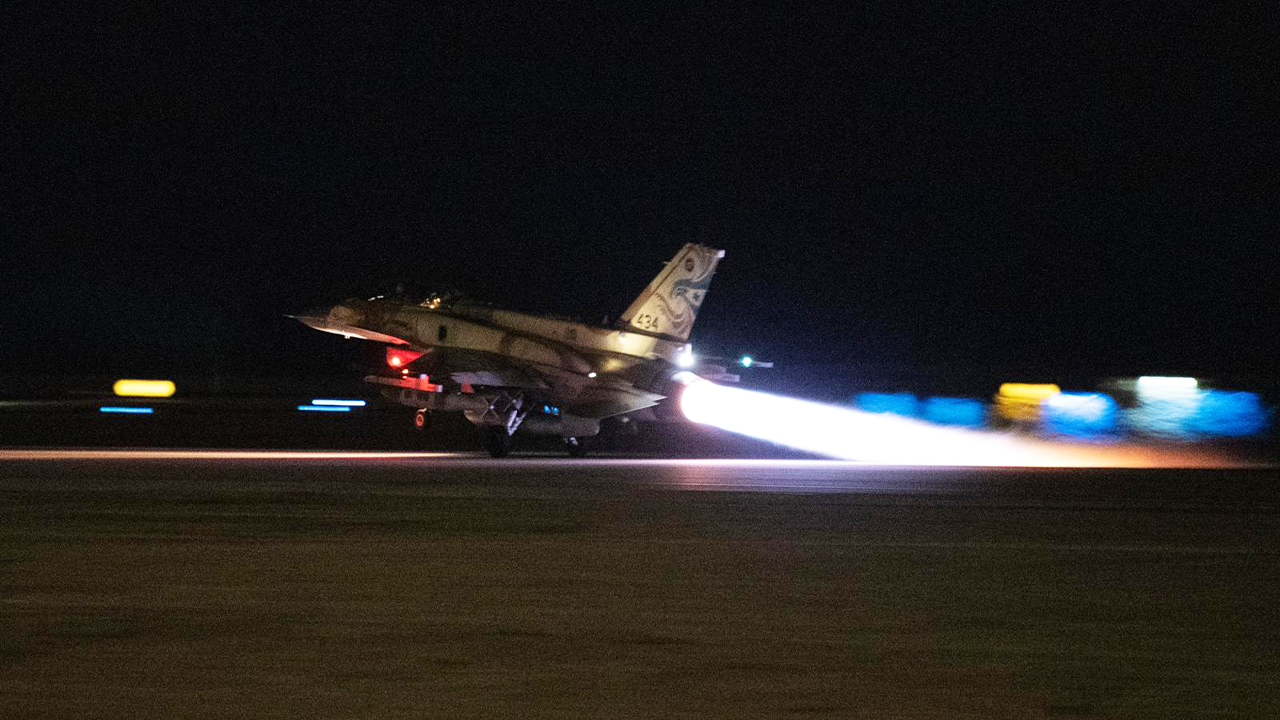Five years ago, 30-year-old Sam Goodwin entered Syria from Iraq as part of a years-long quest to visit every country in the world.
His visit to war-torn Syria, country 181 of 193 for the St. Louis native, would be quick. Goodwin stayed in Qamishli, a city on the Turkey-Syria border, which he believed was under the control of the U.S.-backed Kurds.
After checking into the Asia Hotel and grabbing a bite to eat, he waited until it was time to meet the friend of a local fixer who would show him around northeastern Syria.
As he was walking down the street to meet his guide at a nearby restaurant, Goodwin decided to call his mother, Ann, on FaceTime near a statue of former Syrian President Hafez al-Assad – the late father of Bashar al-Assad, the country’s current president – to show her some of the landscape.
Portraits of Syrian President Bashar al-Assad (L) and his late father and predecessor, Hafez, hang on the wall of a destroyed apartment in the southern Lebanese town of Bint Jbeil, 17 August 2006. (Patrick Baz/AFP via Getty Images)
A man in a military uniform called out to him, and instinctively, Goodwin explained that he wasn’t taking pictures; he was simply speaking with his mother.
That was the last thing Ann heard before the phone shut off, and it would be the last conversation she’d have with her son until his release from Syria’s prison system 62 days later.
Goodwin spoke with Fox News Digital ahead of the release of his book “Saving Sam The True Story of an American’s Disappearance in Syria and His Family’s Extraordinary Fight to Bring Him Home.”
“I was taken into the basement of a facility that I now know is called Syria’s Military Intelligence [Branch] number 215, a facility notoriously known for housing political prisoners, and I was held here in solitary confinement for 27 days. The only human interaction I had was for a few seconds in the morning and evening when the guards brought bread and boiled potatoes and water,” he said.
A side-by-side view of Sam Goodwin at the Lebanon-Syria border after his release and Branch 215 in Damascus. (Sam Goodwin/Fox News Digital Ashley Carnahan)
Goodwin, a former Division I collegiate hockey player, told Fox News Digital he had leaned on a number of things, including his Catholic faith and his world travels, to help him get through his imprisonment in Branch 215 and Adra Prison.
“I leaned on a belief that I had a purpose in life and a desire to see family and friends again. In that cell, though truly at rock bottom, I found strength by leaning into gratitude, which is a bit paradoxical, controlling the things that I could control and recognizing that this uncertain time is an opportunity for growth,” he explained. “And that’s what I learned, and that’s what I try to communicate today, having been put in a tough situation.”
He added that he doesn’t have much information as to why he was detained and is still looking for answers.
A map of where Sam Goodwin was taken while in Qamishli, Syria in 2019. Courtesy of Sam Goodwin
“Northeast Syria is controlled by the Syrian Democratic Forces by and large, but there are still a few Assad regime presences that are there,” said Andrew Tabler, the Martin J. Gross senior fellow at the Washington Institute.
“Those are areas that you want to steer clear of, because if you get stopped at those checkpoints, and you’re an American citizen, you could be detained for a variety of reasons.”
From Adra To Lebanon And Back Home
Goodwin said he was blindfolded and interrogated for hours by a man who spoke perfect English. The man threatened to hand him over to ISIS if he would not confess to being a spy.
On his 27th day in solitary confinement, Goodwin was transferred to another large prison building before being taken to Adra, a prison on the outskirts of Damascus, a few days later.
An aerial view of Adra Prison, located on the outskirts of Damascus, Syria. (Google Earth/Fox News Digital Ashley Carnahan)
“The other inmates at Adra became friends. We cooked and shared food together. They taught me Arabic. I taught them English. There was a prison basketball court, and I taught several of them how to play knockout. One of them even smuggled a note out of the prison on my behalf, a note that successfully navigated a game of geopolitical telephone and made it to my father back here in the United States. These men truly risked their [lives] to help save mine and were this remarkable display of humanity,” he recalled.
“These men reinforced some of the most significant things that I’ve learned through my travels. For example, never judge people by the actions of their government. I have learned that people who have the least often give the most. Something I found to be true in all corners of the world.”
Police stand at the gate of Damascus Central Prison in the Adra area near the Syrian capital of Damascus in this May 28, 2010, file photo. (Reuters/Khaled al-Hariri/Files)
“I’ll never forget, about two weeks into that second month, one of the inmates came to me and I said to him, I said, everybody here is being so nice to me. . . . And he said to me, Sam, in Syria, all the good people are here in prison, because all the bad people are outside putting us in here. And that was a very sobering comment to hear,” he continued.
Goodwin’s family worked with the FBI, the CIA, the State Department, the special presidential envoy for hostage affairs, Vatican envoys, Middle East experts and more to bring him home.
The Goodwin siblings and matriarch Ann meet former National Security Adviser Robert O’Brien. Courtesy of Sam Goodwin
The family even wrote a letter to Pope Francis, asking him to help with efforts to secure their son’s release.
Joseph Abbas, the uncle of Goodwin’s sister’s friend and former college roommate, reached out to an old friend – General Abbas Ibrahim – who was appointed as the head of Lebanon’s General Security Directorate in 2011, to help with the case.
TOP LEBANESE INTELLIGENCE CHIEF, MEDIATOR WITH SYRIA STEPS DOWN
Sam Goodwin (left), Gen. Abbas Ibrahim (middle) and Joseph Abbas (right) meet in Lebanon. (Courtesy of Sam Goodwin)
General Ibrahim traveled to Syria and met with Ali Mamlouk, a close security aide and adviser to President Assad, to explain that Goodwin wasn’t a spy; he was simply a tourist.
After months of prayers, meetings and phone calls, Goodwin’s release had been secured, and he was driven to Lebanon, where he saw his parents, who had flown in to meet him, for the first time in two months.
“The true heroes of this story are my family. The fact that they were able to reach a head of state on the other side of the world in seemingly several different ways is extraordinary, and it’s humbling. And I’m still struggling to figure out how to characterize the way that I feel about that,” he told Fox News Digital.
“On one hand, I think it’s an unforgettable story that includes a travel journey to every country in the world, high-stakes diplomacy, heads of state, celebrities. But on the other hand, and I think more importantly, it’s also about what we all learn through this experience.”
Ashley Carnahan is a writer at Fox News Digital.




